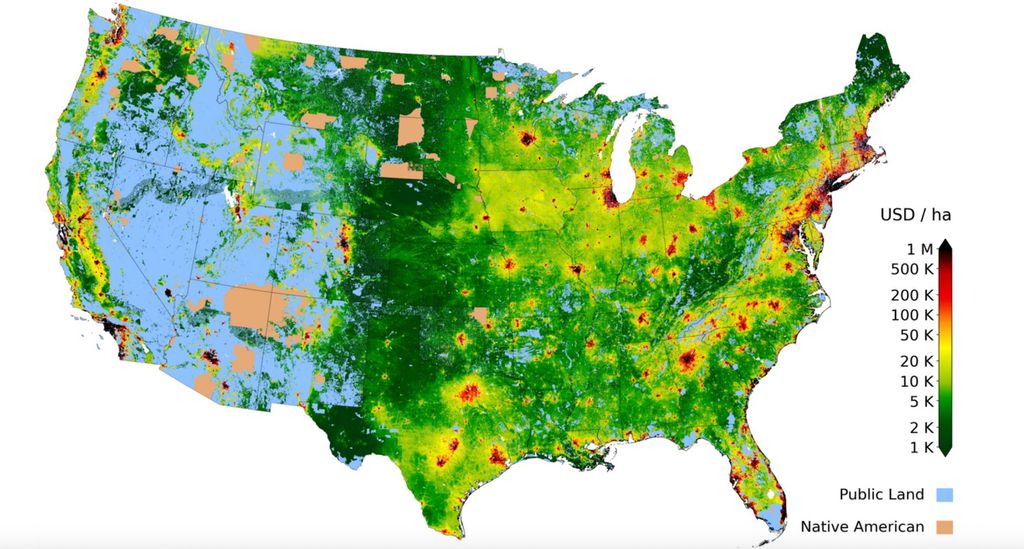Since the start of 2020, the effects of global climate change have been increasingly apparent, from the wildfires that ravaged California and Colorado to Arizona experiencing the highest number of consecutive days with temperatures skyrocketing over 100 degrees Fahrenheit. Issues of climate change and conservation received more attention during the first presidential debate on September 29, 2020, than in any other presidential debate in history.
Christoph Nolte, a Boston University College of Arts & Sciences assistant professor of earth and environment, has spent the majority of his career studying how effectively conservation efforts protect the environment from our changing climate. Through research, he's asking key questions about where concerted conservation efforts take place and what difference they make for our world at large.
To inform future decisions about conservation policy, Nolte has now created the first high-resolution map of land value in the United States-a tool he says will improve our estimation of environmental conservation costs, inform policy recommendations, and help other researchers conduct their own studies on rebuilding and protecting what's left of natural resources and the biodiversity within our ecosystems. The Brink caught up with him to learn more about the map and its related findings, which were published online in Proceedings of the National Academy of Sciences.

This research was supported by the Department of Earth & Environment at Boston University, the Junior Faculty Fellows program of Boston University's Hariri Institute for Computing and Computational Science, and The Nature Conservancy.






